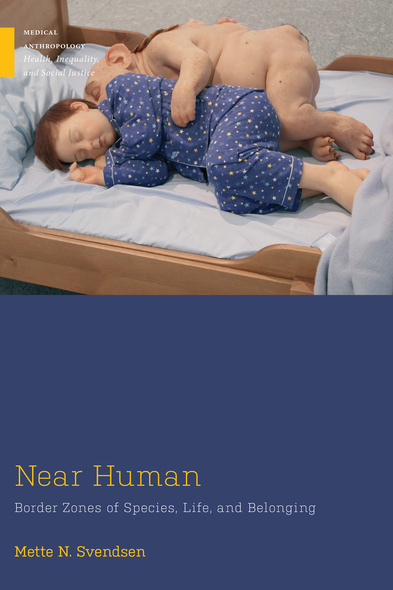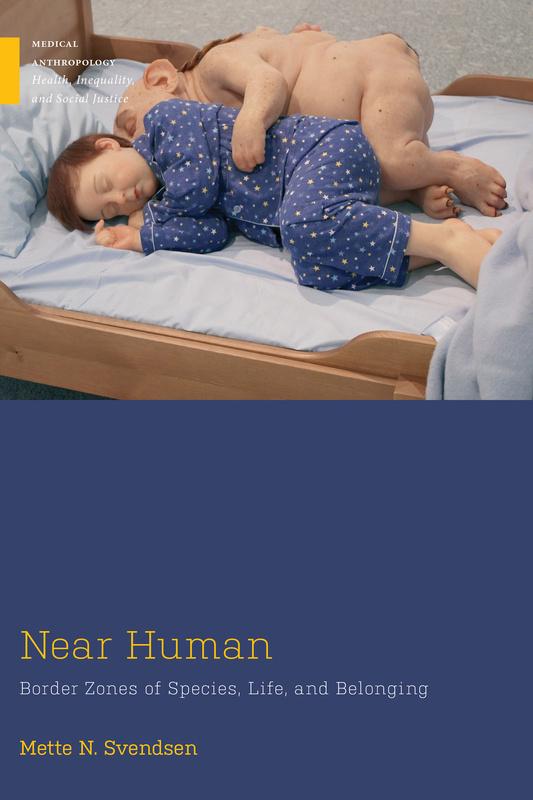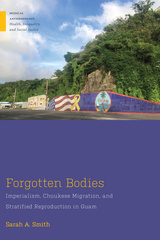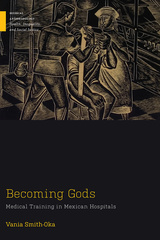
230 pages, 6 x 9
14 b-w images
Paperback
Release Date:12 Nov 2021
ISBN:9781978818217
Hardcover
Release Date:12 Nov 2021
ISBN:9781978818224
Near Human
Border Zones of Species, Life, and Belonging
SERIES:
Medical Anthropology
Rutgers University Press
Near Human takes us into the borders of human and animal life. In the animal facility, fragile piglets substitute for humans who cannot be experimented on. In the neonatal intensive care unit, extremely premature infants prompt questions about whether they are too fragile to save or, if they survive, whether they will face a life of severe disability. Drawing on ethnographic fieldwork carried out on farms, in animal-based experimental science labs, and in hospitals, Mette N. Svendsen shows that practices of substitution redirect the question of "what it means" to be human to "what it takes" to be human. The near humanness of preterm infants and research piglets becomes an avenue to unravel how neonatal life is imagined, how societal belonging is evaluated, and how the Danish welfare state is forged. This courageous multi-sited and multi-species approach cracks open the complex ethical field of valuating life and making different kinds of pigs and different kinds of humans belong in Denmark.
Near Human examines the moral sensibilities and substitution practices through which human and non-human lives come to be valued, sustained, and included within the collectivity – or killed and excluded. In Svendsen’s masterful account, vivid stories from Denmark – about piglets and preemies, scientists and migrants, global exchanges and border closures – speak to fundamental questions about how human lives and societies get shaped, alongside the lives of animals. A breathtaking achievement!
In this pathbreaking book, Mette Svendsen shows the ways in which Denmark relies upon pigs as fodder for its welfare state. Expanding the frames of translational medicine, Svendsen shows how the pig figures as a source of health and wealth that sustains the Danish population. The human-animal nexus becomes a prism to explore the boundaries of the nation, its citizenry and the politics of (non)belonging. This compelling and beautifully written book shows just how much can be learned by making other-than-human animals central to medical anthropology.
Near Human examines the moral sensibilities and substitution practices through which human and non-human lives come to be valued, sustained, and included within the collectivity – or killed and excluded. In Svendsen’s masterful account, vivid stories from Denmark – about piglets and preemies, scientists and migrants, global exchanges and border closures – speak to fundamental questions about how human lives and societies get shaped, alongside the lives of animals. A breathtaking achievement!
In this pathbreaking book, Mette Svendsen shows the ways in which Denmark relies upon pigs as fodder for its welfare state. Expanding the frames of translational medicine, Svendsen shows how the pig figures as a source of health and wealth that sustains the Danish population. The human-animal nexus becomes a prism to explore the boundaries of the nation, its citizenry and the politics of (non)belonging. This compelling and beautifully written book shows just how much can be learned by making other-than-human animals central to medical anthropology.
METTE N. SVENDSEN is a professor of medical anthropology at the University of Copenhagen in Denmark.
List of Illustrations
Foreword by Lenore Manderson
Prologue
Introduction
1 Feeding: Cows, Pigs, and Humans
in Interspecies Kinship
2 Killing: Pigs as Sacrificeable Beings
3 Treating: Infants at the Margins of Life
4 Metabolizing: Humans and Nonhumans in a Global Field
Epilogue
Acknowledgments
Notes
References
Index
Foreword by Lenore Manderson
Prologue
Introduction
1 Feeding: Cows, Pigs, and Humans
in Interspecies Kinship
2 Killing: Pigs as Sacrificeable Beings
3 Treating: Infants at the Margins of Life
4 Metabolizing: Humans and Nonhumans in a Global Field
Epilogue
Acknowledgments
Notes
References
Index







